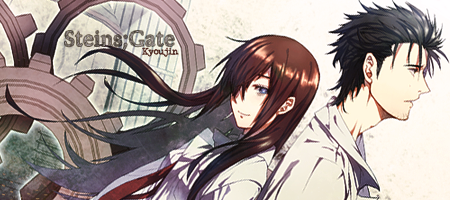This was an incredible, emotionally devastating episode. Though rather simplistic in nature, this episode was filled with a plethora of emotionally complex developments, depicting a greater focus on Shun and Saki’s compelling relationship and the unavoidable tragedy that has infiltrated it‘s unrealized form, having lost any chance for a hopeful fruition of these feelings. The episode, though slightly underwhelming in several areas of the production, never faltered into a primarily flawed execution. As such, the directorial touches were surprisingly suitable, as, unlike episode five, a narrative cohesion, though barely perceptible at times, was infused into the episode. Essentially, this was the best episode of the series, slightly elevating above the fourth and ninth episodes.
My favorite sequence, by far, was Saki and Shun’s intimate, beautifully melancholic conversation. This entire interaction displayed a nuanced depth to their relationship that hadn’t previously been felt, while two divergent threads of emotion filtered into their fleeting conversation. Shun is calmly acceptant of his imminent death, while Saki intermittently pleads for him to stay by her side, clinging onto a fleeting vestige of hope. These final glimpses of a mutual love between them revealed a subdued, but effective tension. Shun's words comprehensively illuminated the inherent risk and inevitable impossibility of constructing and subsequently regulating a relatively “perfect” society, since it will ultimately be undone by the inability for the individuals that populate this “diseased” section of humanity to control their own thoughts and desires, while also touching upon the unexpected realization that his subconscious thoughts had previously affected reality, as it's also revealed that this unintended consequence caused the destruction of his village. The musical selection that was used throughout excellently captured the wistful, bitter emotions that permeated this scene.
Another sequence I really enjoyed was Saki’s beautifully atmospheric trek through the forest. Shun’s introspective narration was thoroughly insightful and brilliantly weaved into Saki’s struggles to find him. I felt that the unsettling emotions that pervaded throughout these illusory fragments of momentary hopelessness were excellently illustrated, especially due to the claustrophobic direction that accentuated her increased anguish and uncertainty. The choral chant that accompanied this scene wonderfully illuminated the underlying despair that had unexpectedly crept into Saki’s life.
One of the more effective moments accompanied the scene in which a deformed Subaru appeared in front of Saki, followed by a momentary glimpse of Shun’s emotionally fractured façade, where he painfully admonishes the unsightly consequences of his unfortunate “illness”, as his cantus continues to uncontrollably deter from a subdued existence. The haunting musical selection really elevated this insight into Shun’s distressed psyche. Another one of my favorite scenes was Saki’s introduction into Shun’s artificial world, which possessed a desolate beauty, from the colorful backgrounds to the house that sits isolated in the middle of a lake. As such, perhaps this secluded abode illustrates a parallel to the ritualistic parable Shun once spoke of, in which that particular karma demon threw himself into the depths of a lake, willingly sacrificing his ability to continue living, since it would likely lead to the destruction of his world.
The opening sequence was rather intriguing, as the previously tranquil cat attacked Saki, but fortunately, due to Shun’s protective charm, she escaped unscathed, culminating with the brutal death of the cat by her cantus. Though somewhat foreseeable, I really liked the explanation which indicated that the Holy Barrier is, in fact, protecting the world from the threats within, rather than preventing others from entering. Saki and Shun's conversation also established the very intriguing realization that the wild animals that roam the fringes of their world, such as the minoshiro, were essentially born from the fragments of escaped cantus. This could also explain the queerats, as their slipped cantus could have mutated other humans into the creatures they have become. It will be highly interesting to unravel the inevitable consequences that will follow Saki’s rebellious actions, which, though seemingly hidden, are very unlikely to remain so, since the Ethics Committee have been perfectly aware of the smallest infraction against their unblemished social order, previously displayed following their forbidden excursion into the edges of the forest and the apparent necessity to dissolve their acquired knowledge.
The heightened focus on Saki and Shun’s relationship was extremely effective in establishing the emotional undercurrent of this episode, and the entire arc, for the matter, since, due to Shun's tragic fate, it seems likely that Saki will begin to further rebel against the Committee, and that her possibly fractured psyche will propel her to a sort of savage motivation she had never felt before. As such, Saki and Shun’s compelling interactions were consistently engaging, having rarely failed to provide, at the very least, a singular element of meaningful intrigue. Though unlikely and certainly not expected, the consequent absence of this dynamic, in turn, has the potential to create a seemingly unfortunate dichotomy between her interactions with Shun and the subsequent interactions she has with the others.
Shun’s death was a momentous development, likely altering the direction of the narrative significantly. Though somewhat predictable, this development was handled extremely well, since this dreaded eventuality was expertly foreshadowed. As such, the most intensely emotional moment was the final scene, in which Shun spoke of his love for Saki, and Saki, having departed from him, cries out his name for the last time, drawing upon their irreparably shattered dreams and the fragility of their romantic aspirations, followed by his mournful decadence, culminating with the symbolic cracking of the mask, as Shun’s existence effectively disappears, lingering only in thought.
The structure of the narrative, so far, has been masterfully methodical, slowly divulging specific inclinations within each character, as well as deftly illuminating subtly foreboding foreshadowing, which has typically led to eventual examinations of said foreshadowing in a rather satisfying fashion, evoking a considerably ominous melancholy that has effectively illuminated this nihilistic sort of morose inevitability to an eventual chaos, since their manipulated powers could very well lead to a partial ruination of their society, particularly indicated by the mystery that surrounds Maria’s involvement in the story, as momentarily touched upon by the bit of narration at the end of the second episode.
Yamauchi’s direction, though it remains occasionally flawed, was a marked improvement over the terrible quality found in his previous attempt. As such, in a satisfying contrast to the fifth episode, Yamauchi’s expressionistic direction didn’t, for the most part, detract from the poignancy of the disparate emotions that suffused the entire episode. In fact, his surrealistic style actually complemented the melancholic atmosphere and tragic developments quite well. His unnecessary predilection for numerous close-ups, though still entirely prevalent, wasn’t noticeably detrimental to the effectiveness of the story, as the emotional nature of the episode benefited from this highly personal approach to a distinctly visual storytelling. The storyboarding was moderately unimpressive, as it still failed to construct an entirely cohesive narrative, but surprisingly, given the abstract nature of this episode, the resulting lack of cohesion didn’t particularly disorient too heavily. The scene transitions weren’t nearly as incoherent as in the fifth episode, but of course, there was still a slight tendency to avoid a logical progression within each scene, but it worked quite well throughout, rarely slipping into a distracting repetition.
This visuals were amazingly unique and highly creative, most evident in the striking exteriors, displaying a particular ambience that worked extremely well. Though the visuals are distinctly removed from the majority of the previous episodes, I feel that the significant contrast is rather effective in establishing the dreamlike nature of this episode. The animation, on the other hand, was unspectacular and inconsistent, but, despite the occasional touch of mediocrity within movements and facial expressions, it, thankfully, never detracted from the effectiveness of any particular moment, as the emotional resonance was hardly diminished. Musically, this episode was amazing, as Komori Shigeo continues to deliver a plethora of stunning compositions, which were excellently accentuated throughout. The sound direction was also superbly effective during several sequences, particularly throughout the scene in which Saki first encounters Shun in the forest, as the echo of his manifested words reverberated around Saki’s approaching footsteps.
All in all, From the New World consistently manages to masterfully excel with it's complex story, engaging characters, and thoroughly intriguing developments, delivering, once again, a beautiful, impressively executed episode. The story, so far, has been very well-written, illustrating a necessary precision in the meticulous construction of the narrative, slowly developing a particular nuance within a character’s development or an essential subtlety within the gradual evolution of their civilization, as it also balances a plethora of dichotomous emotions. It appears quite possible that, if not now, Saki and the others will eventually uncover the deceptive manipulation that has potentially restrained and partially weakened their abilities, while also thoroughly tampering with their memories, which could very well occur again. This would be an extremely interesting direction to take, as it offers the most potential for the complexities within their society to be fully dissected. It also seems likely that Maria and Mamoru will be far more prevalent and essential to the remainder of the story, since, up until now, they’ve only been tangentially involved. |



















